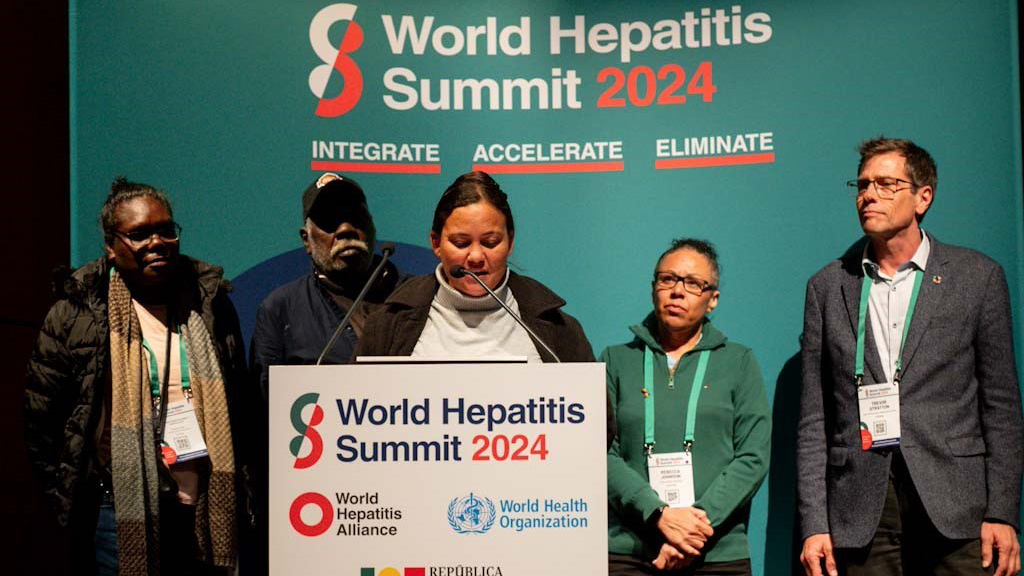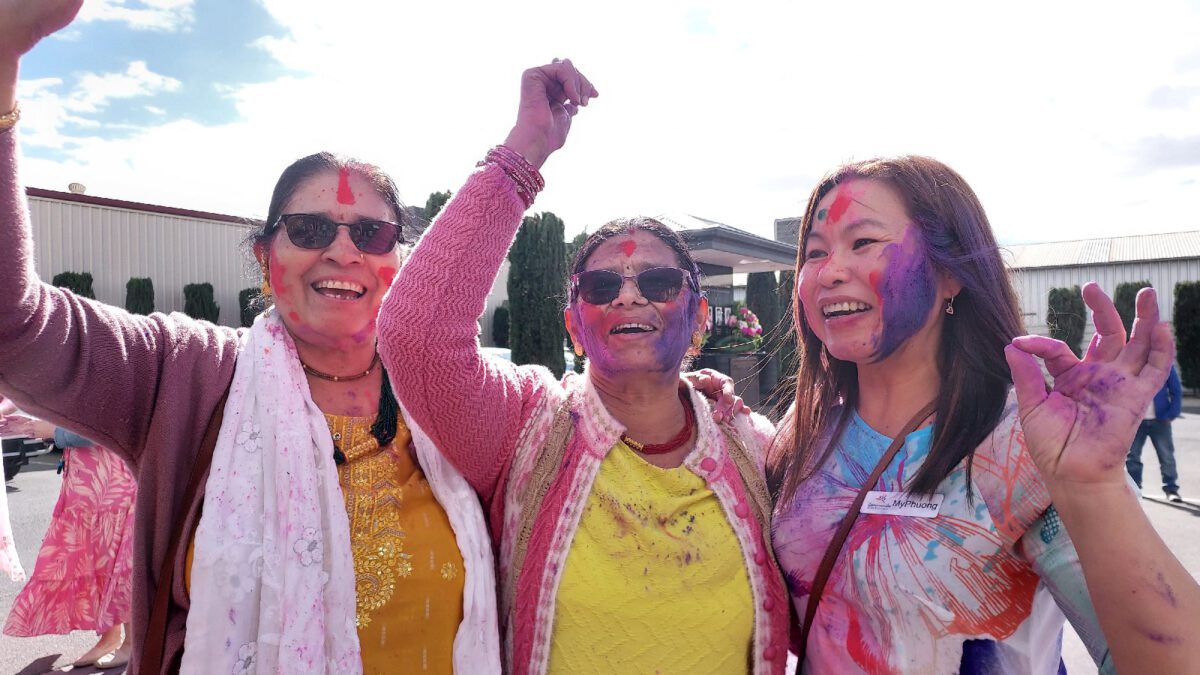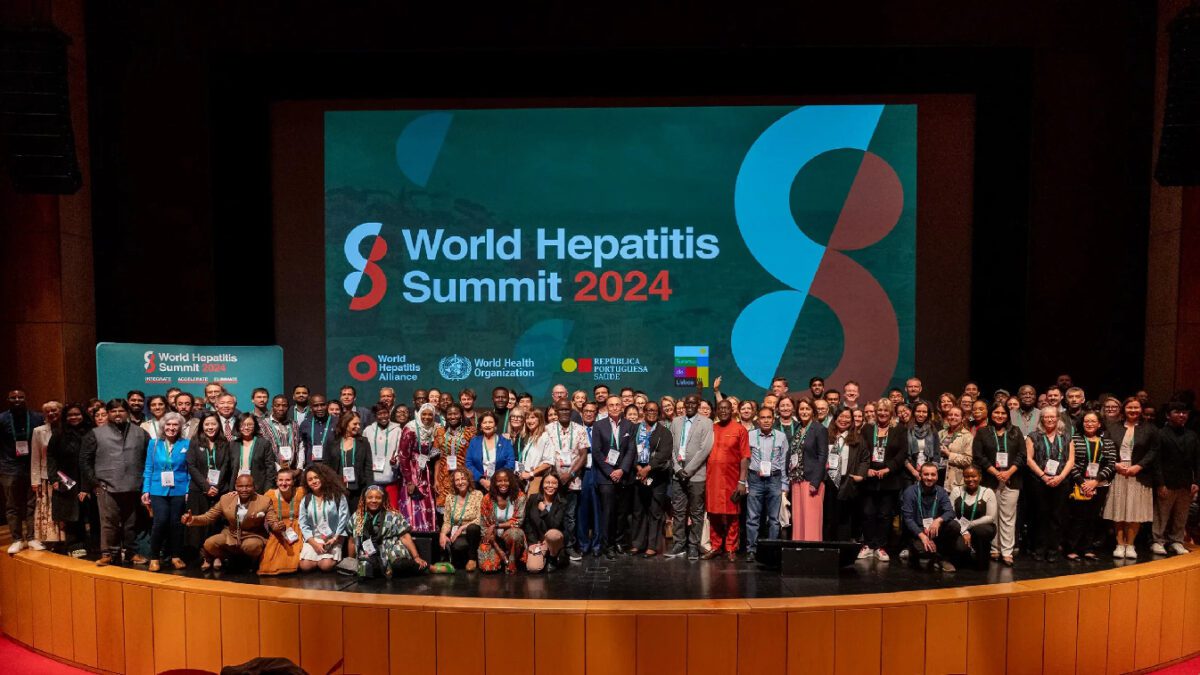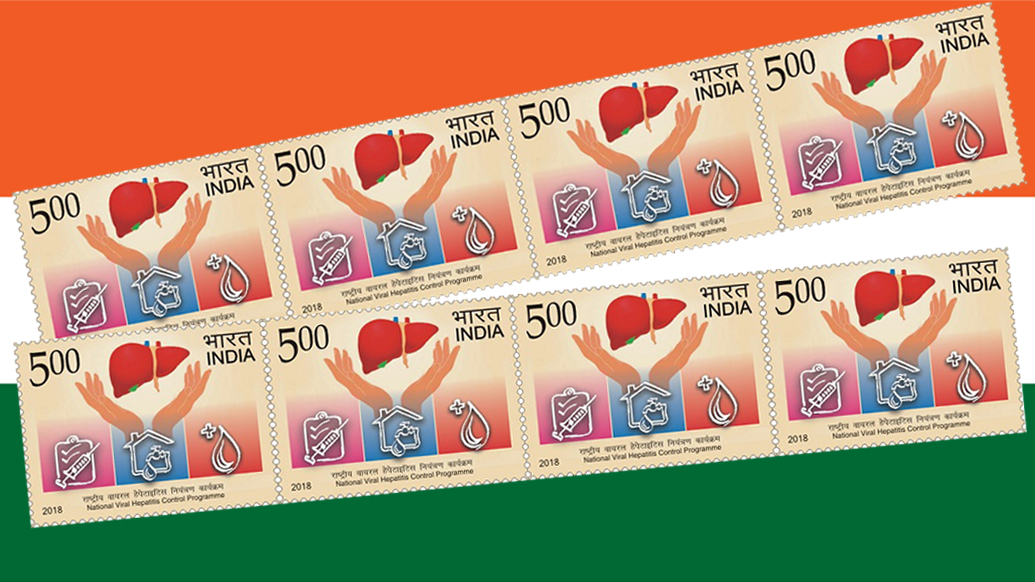“We acknowledge all Indigenous peoples around the world here with us and online.
We, the presenters of the Indigenous Session at the World Hepatitis Summit 2024 are here to present this statement, calling on all governments, partners, and stakeholders to walk with us on the path to elimination. This statement has been created as the first of what we hope is an iterative process over future summits where we can strengthen this statement and bring more Indigenous peoples together.
On 9 April 2024, a session focusing on Indigenous people and viral hepatitis was held for the first time at the World Hepatitis Summit in Lisbon. This is an important first step in an ongoing two-way learning process in this forum for years to come.
Globally, Indigenous peoples and communities bear a disproportionate impact of viral hepatitis. This is the result of the ongoing consequences of colonisation, where the policies and practices of governments, healthcare and social systems continue to marginalise us.
Despite this, Indigenous peoples, our communities, and our organisations, are strong, resilient and steadfast in our leadership and deep commitment to our communities.
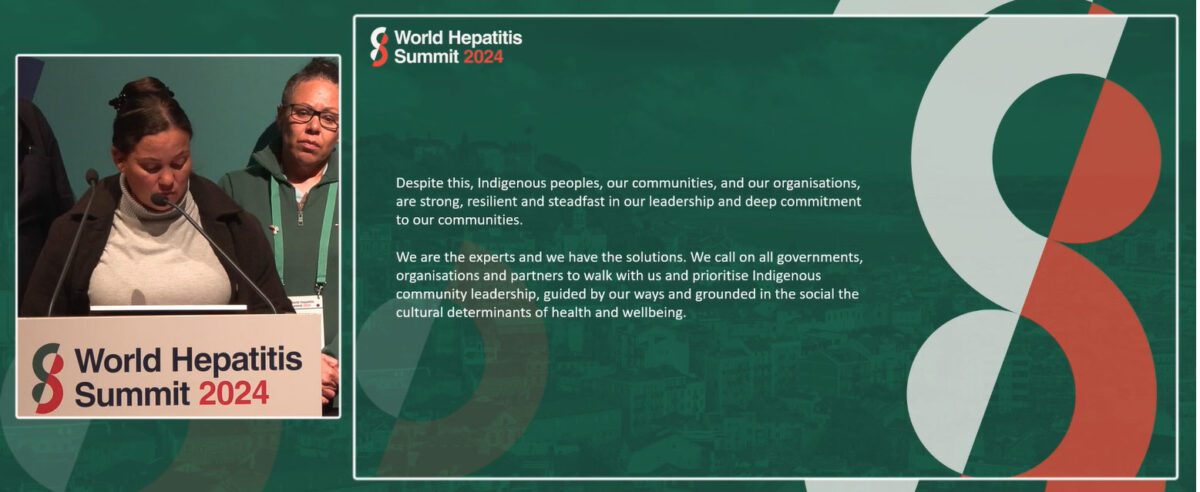
We are the experts and we have the solutions. We call on all governments, organisations and partners to walk with us and prioritise Indigenous community leadership, guided by our ways and grounded in the social the cultural determinants of health and well-being.
Indigenous leadership, genuine partnership, and two-way continuous learning are necessary preconditions for the elimination of viral hepatitis. In order to achieve this, we identify the following eight priorities:
- Centering and embedding Indigenous leadership and ways of being, knowing and doing.
- Resourcing self-determined, culturally appropriate, and community-specific policies, programs and services, fully and sustainably.
- Ensuring equitable partnerships with Indigenous communities including resourcing, education and capacity-building to undertake work in genuine partnership.
- Decolonising responses to viral hepatitis by working together, acknowledging and addressing the ongoing impacts of colonisation to ensure better outcomes for future generations.
- Resourcing and supporting sharing in first languages and coordination across global Indigenous communities on Indigenous-led viral hepatitis responses.
- Supporting, resourcing and centering Indigenous health workers, who are critical to driving successful outcomes in Indigenous communities.
- Ensuring viral hepatitis responses are holisitic, person-centred, and community-centred to appropriately and effectively achieve meaningful outcomes in Indigenous communities.
- Upholding Indigenous rights as enshrined in the United National Declaration on Rights of Indigenous Peoples (UNDRIP).”

